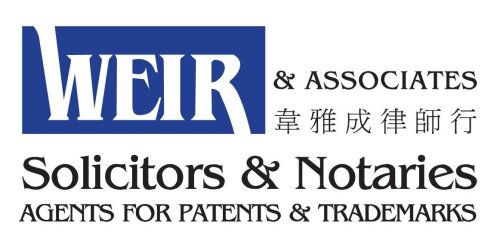Best Administrative Lawyers in Central
Share your needs with us, get contacted by law firms.
Free. Takes 2 min.
List of the best lawyers in Central, Hong Kong
About Administrative Law in Central, Hong Kong
Administrative law in Central, Hong Kong, essentially governs the activities of various governmental bodies, whether they are national or local. It encompasses a wide range of areas such as immigration, taxation, environmental protection, and more. This body of law primarily seeks to maintain order, ensure fairness and legality in governmental operations, as well as protect the rights of individuals.
Why You May Need a Lawyer
A lawyer specialized in administrative law can greatly help in dealing with cases, claims or lawsuits that involve governmental agencies. It could be immigration issues, disputing tax assessments, regulations or licenses related issues, enforcing environmental laws among other situations. Matters often involve dealing with complex paperwork, procedures or even litigations where specialized knowledge of administrative law is crucial.
Local Laws Overview
Central, Hong Kong follows the principles of the common law system. Key aspects of administrative laws include the Public Health and Municipal Services Ordinance, Taxation Ordinance, and Immigration Ordinance. These laws outline the responsibilities of the relevant government departments, the rights of people, and the procedures for resolving disputes. They also address critical issues like public health, taxation, immigration among other things within the jurisdiction of Central, Hong Kong.
Frequently Asked Questions
What is the role of a legal practitioner in Administrative Law?
A legal practitioner in Administrative Law typically represents clients before governmental agencies, assist in the preparation and filing of necessary paperwork, and provide advice on the legality and potential impacts of government decisions.
Can I bring forward a complaint to government agencies by myself?
Yes, individuals may bring forward complaints to government agencies themselves. However, the process is often complex, and having a lawyer could significantly streamline the process and improve the chances of a favourable outcome.
Does Administrative Law cover all kind of government decisions?
Administrative Law mainly covers regulatory decisions by the government bodies. However, it does not extend to the political decisions taken by the government.
Can an Administrative Law attorney appeal a government decision?
Yes, administrative law attorneys can appeal government decisions. They can represent their client in court to challenge the decision or the manner it was arrived at if it's suspected to be illegal, procedurally flawed, or unfair.
Is there a statute of limitations in administrative cases?
Yes, like other legal matters, administrative cases do often have a statutory limit within which a legal action must be initiated. The duration of this limit varies, depending on the specific issue.
Additional Resources
For more information, you can refer to resources like the 'Hong Kong e-Legislation' digital portal that provides access to the authentic version of Hong Kong's legislation. You might also find it helpful to connect with the Administrative Appeals Board, the Home Affairs Department, and the Law Society of Hong Kong as they provide relevant information and assistance regarding administrative issues.
Next Steps
If you believe you require legal assistance related to administrative law in Central, Hong Kong, the best first step is to find a reputable lawyer who specializes in Hong Kong's administrative law. Prepare well for your initial consultation by outlining your issue clearly, gathering any relevant paperwork, and making a list of concerns or questions you may have. Remain proactive in understanding your legal situation to make the most of the legal services you receive.
Lawzana helps you find the best lawyers and law firms in Central through a curated and pre-screened list of qualified legal professionals. Our platform offers rankings and detailed profiles of attorneys and law firms, allowing you to compare based on practice areas, including Administrative, experience, and client feedback.
Each profile includes a description of the firm's areas of practice, client reviews, team members and partners, year of establishment, spoken languages, office locations, contact information, social media presence, and any published articles or resources. Most firms on our platform speak English and are experienced in both local and international legal matters.
Get a quote from top-rated law firms in Central, Hong Kong — quickly, securely, and without unnecessary hassle.
Disclaimer:
The information provided on this page is for general informational purposes only and does not constitute legal advice. While we strive to ensure the accuracy and relevance of the content, legal information may change over time, and interpretations of the law can vary. You should always consult with a qualified legal professional for advice specific to your situation.
We disclaim all liability for actions taken or not taken based on the content of this page. If you believe any information is incorrect or outdated, please contact us, and we will review and update it where appropriate.













